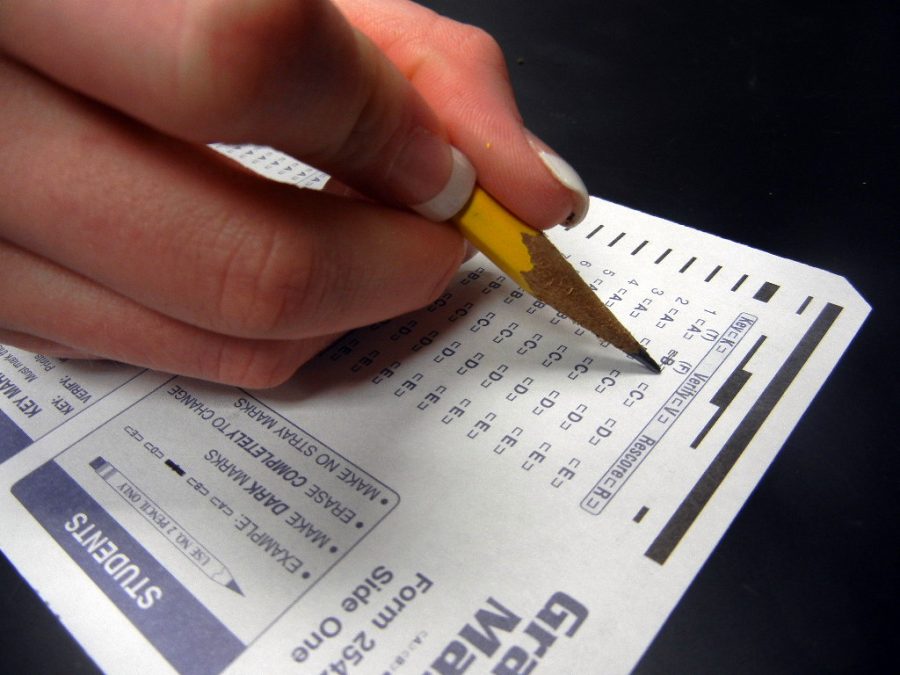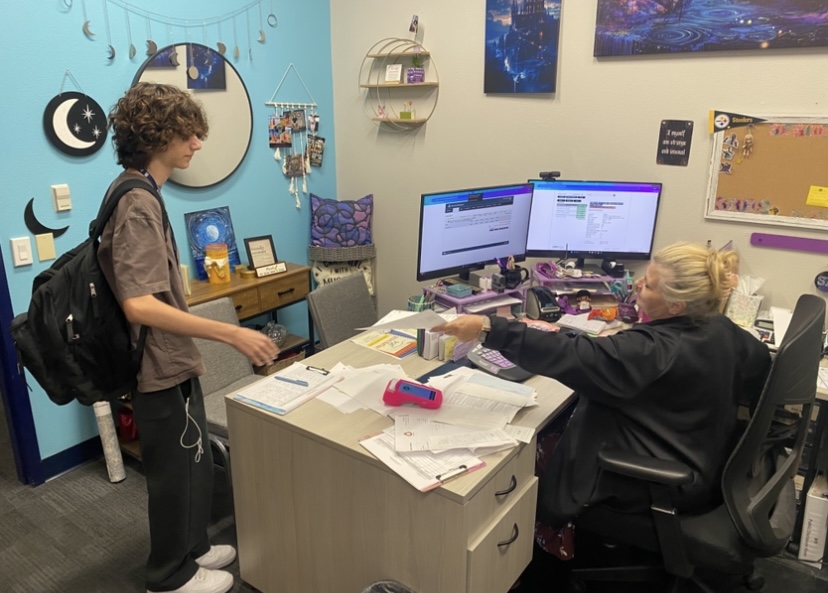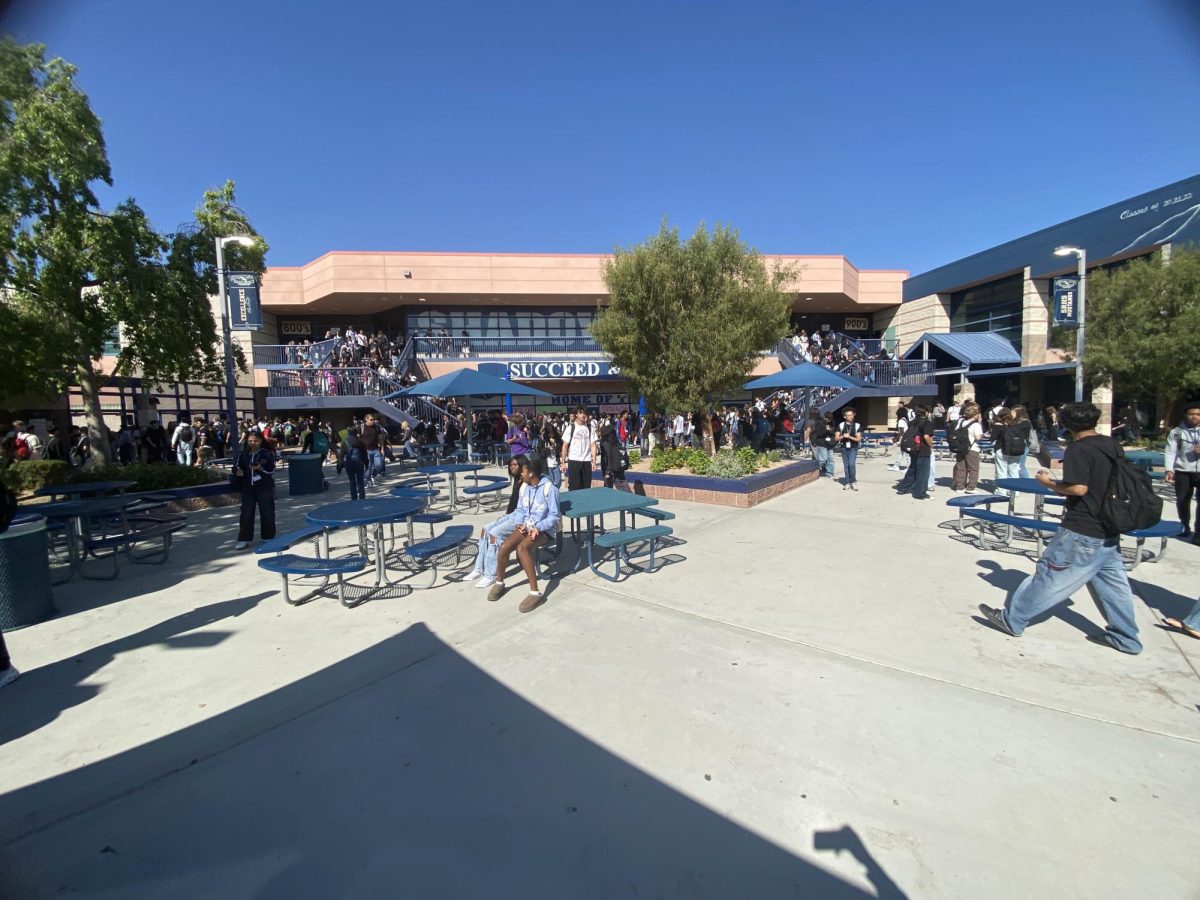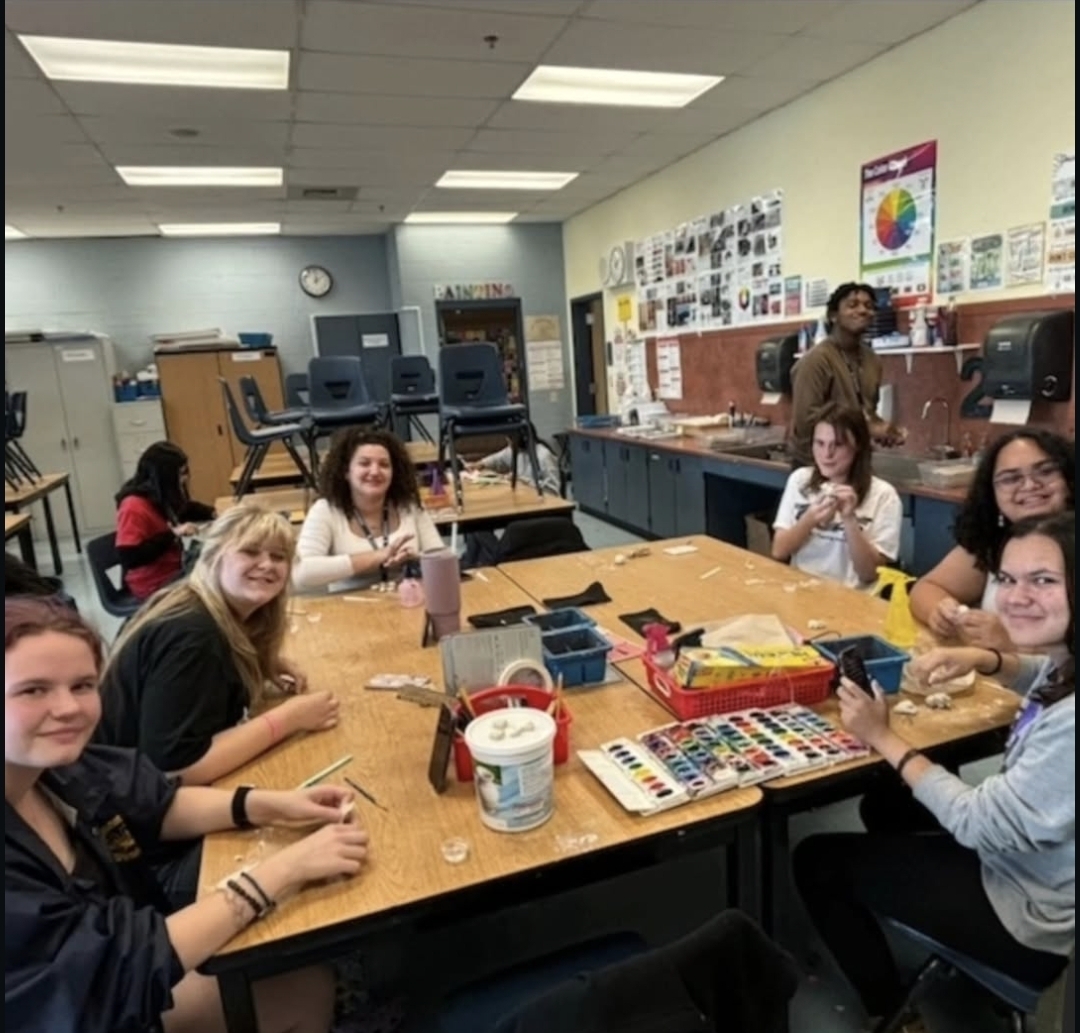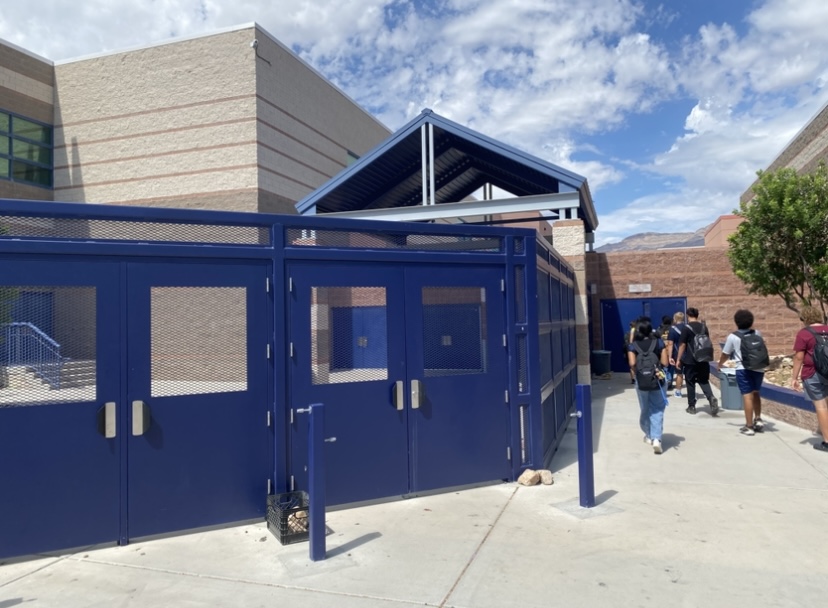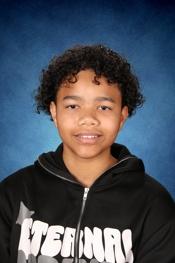Final exams are one of the most important events during a school year, accounting for 15% of a student’s semester grade, it can be the difference between that B or an A, or it can be the difference between an F or a D. Regardless of a student’s situation, it’s important to prepare for finals.
It’s important to tackle issues from multiple perspectives, teachers have not only issued final exams of their own, but they’ve also taken more than any average high school student.
Shadow Ridge history teacher Allison Wilson states, “Finals can feel overwhelming, but they’re just another step in your learning journey, so don’t stress too much or work yourself up over them. My advice is to remember that it’s not just about cramming information at the last minute. Finals reflect the work you’ve done throughout the entire year, so if you have been a good student, kept up on the work and put in some effort, you are already halfway there.”
Finals aren’t like other tests taken throughout the school year, they cover significantly more material. If it takes an average student 1-2 days to prepare for a test with less material than final exams, naturally it would take longer to study for finals.
“My biggest tip is to start early. Finals week can sneak up on you, but if you spread out your studying over a few weeks, it won’t feel as daunting,” states Wilson. “Break things down into manageable chunks—review notes or canvas modules, or even quiz yourself or study with a friend. Remember that like I said before, if you have kept up in class, paid attention to and learned the material as you go, you won’t need to prepare nearly as much at the last minute. Also, don’t shy away from asking for help if you’re stuck. Your teachers are here to support you!”
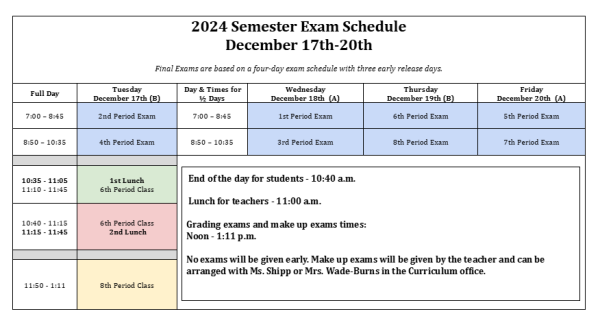
This advice works great in order to generally prepare for all of a student’s finals, but all students are different; some may need help in a particular subject in order to prepare for exams.
Wilson states, “For history, it’s all about understanding the bigger picture. Don’t just memorize dates and names—ask yourself why events happened and how they’re connected. History is like a story, and the more you see the cause-and-effect relationships between events, the easier it will be to remember the details. Creating or knowing the timelines that events took place in can really help too. Lastly, practice writing out responses or short essays since history finals often require explaining concepts in your own words. That is part of the reason we do quite a bit of writing and essay style responses is to prepare you for those final questions and even beyond for college.”
Whereas history focuses more on a general understanding of events, science focuses on memorization of definitions and phenomena.
Shadow Ridge chemistry teacher Rebbeca Cleveland states, ”For science in particular it is good to review your reflection submissions from every lesson, review your notes, and any practice materials you are given by your teacher (whether that be a study guide or online reviews) go through them more than once. Spend time reviewing every night but not so much time that you overwhelm yourself, don’t waste time on lessons that were easy but review the lessons you struggled with and review with a partner if possible (speaking out loud, even if it just means you taking turns reviewing terminology or something like that saying it out loud helps get it in your head more permanently).”
Math is all about memorization, memorizing formulas is the main thing a student needs to know going into the exam.
Shadow Ridge Math teacher David Pohl states, “The math department will typically have at least 50 multiple choice questions composed from all of the units or modules that were presented throughout the semester. Therefore it is easy for us to create a practice exam composed of similar questions to help each student study. If your teacher creates such a practice exam I would recommend you to start working on them as soon as possible. Tackle a few questions at a time; don’t wait till the last minute to work on everything at once. (Remember it took you a full semester to accumulate all that knowledge.) Once you start working on those practice problems concentrate on the ones that you are having problems with. Call up your notes or the notes left electronically to help you recall how to work the problems.”
Pohl also provides advice applicable while actually taking the test, stating, “Once you actually start taking the exam, remember to use your test-taking skills to help you answer the questions. Those skills include eliminating answers one by one, or using the answers themselves to work on the stem problem. If it is a word problem, look to the last sentence of the problem to help you concentrate on what the problem wants you to solve. Also, don’t worry that you have to PASS the exam (with 60% etc.); many of my students in the past fell below the 60% margin, yet still passed the entire semester. Remember it is just 15% of your semester grade, so just consider the exam as “beefing up” your quarter averages. And when push comes to shove, you could always GUESS, but try to make it an educated guess; statistics show that by guessing you should at least get 25% correct!”
Despite the name final exam, it’s important to remember that no matter the outcome of these upcoming exams, there will always be a chance next semester. Pass or fail, finals aren’t the end of the world.


